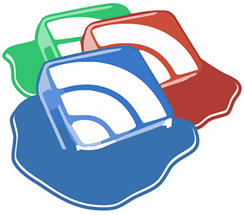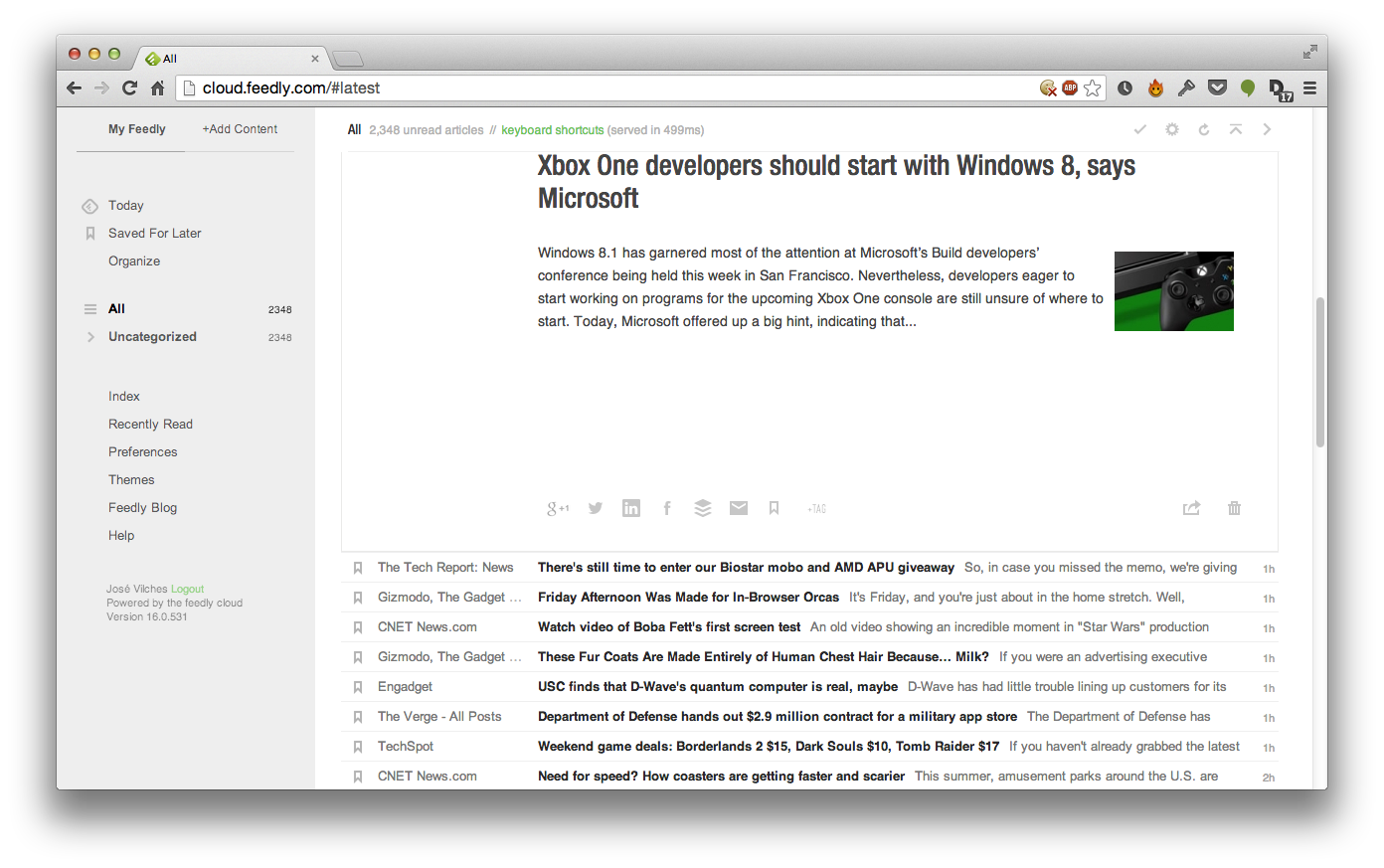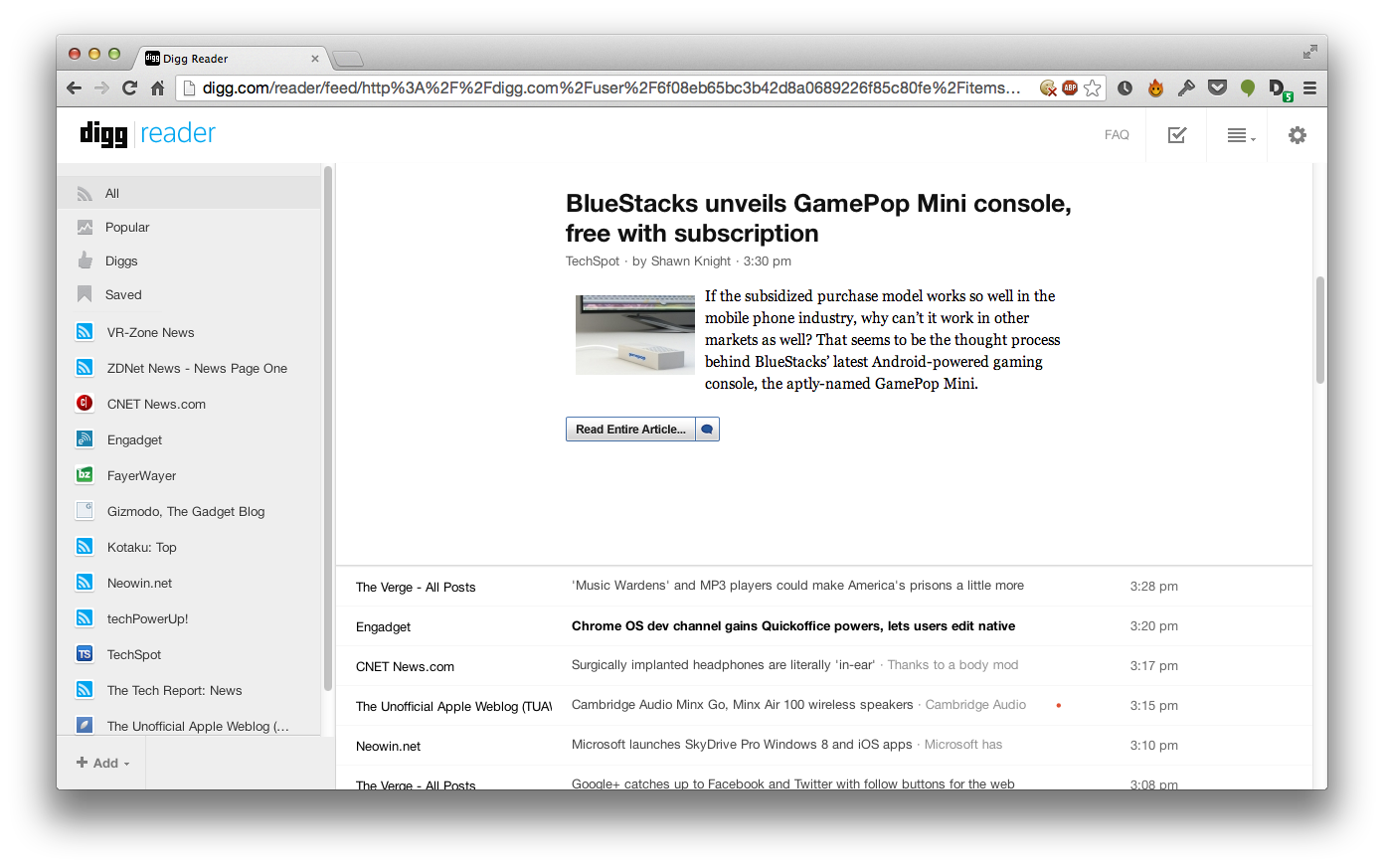With Google Reader nearing its imminent death, a race to build the perfect alternative for the service's refugees has been taking shape over the last few weeks. Even though there are dozens of alternatives already out there, if you care about cross-platform compatibility and synchronization across different devices for things like read and favorited items, then your options are a little more limited than you'd imagine.
Update: Google Reader has officially gone offline and the company has announced that all data will be permanently deleted after 12PM PST on July 15th. You can use Google Takeout to download a copy of your subscription info, including lists you follow, starred items and notes.
Local Sync Versus Server-based RSS
If you access your news feed from a single device, then in theory any standalone app capable of fetching RSS should suffice. However, this scenario poses some limitations even if you don't need to sync devices.
Due to the way most RSS feeds work, only the last few articles will be downloaded, rather than every new story since you last checked. That means the only way to make sure you are not missing out on anything is to have the app running in the background at all times, which is hardly an ideal scenario.
On the other hand, server-based RSS services like Google Reader frequently poll feeds for new articles, downloading everything that's available and keeping it in their local database. That way whenever you access the service, from your browser or any mobile or desktop app that connects to it, you will be able to catch up on all new articles from all your subscriptions regardless of the last time of synchronization.

Does RSS Even Matter Anymore?
Google feels RSS is no longer as important as it used to considering how the average internet user receives his fix of interesting links and news via social networks – most of the time not through their social network, though.
But for millions of professionals that need that constant stream of information, from manually selected sources rather than algorithms or shared links, RSS is a big deal. Journalists, bloggers, programmers, researchers, students, tech savvy people, among others, fall into this group. It's a niche product, but still a big niche.
What Should I Do?
First things first: if you are a Google Reader user and want to keep all your data intact, you'll need to export everything before July 1 (that means we are mere hours away). Head over to Google Takeout's Reader page and click on "Create Archive" – it might take a couple of minutes. Once it's done save the resulting zip file.
Now, on to the alternatives. Here are a handful of services we're keeping our eye on:
Top free(mium) contenders
Feedly
Feedly is probably the most popular and well rounded Google Reader alternative out there, due in part because it's been developed for years and didn't just sprung up after the Google Reader announcement. That said, since news of the closure got out they've been working on new features like crazy and preparing for the influx of incoming users. Among other things, they launched their own sync server, a one-click migration tool, made UI tweaks, added a ton of hardware to their backend, and designed an open API for third party apps to tap into.

If you prefer a 'native' experience, Feedly also has its own iOS and Android apps in addition to the web client. All in all, they've moved at an impressive pace which is a testament to their ability to iterate and scale.
Still missing: search functionality.
Available on: Web, official iOS and Android apps, IFTTT, Sprout Social, Nextgen Reader, gNewsReader for BlackBerry 10 and for Symbian/MeeGo, Press, gReader, Newsify, Pure News Widget, Meneré, and Reeder for iPhone – Mac and iPad Reeder clients will be added later.
Digg Reader
Digg Reader is still very much in development but the team behind it has been racing to have the core RSS reading functionality ready in time for Google Reader's shutdown. At time of writing only users who applied for the beta have been given access but invites are rolling out quickly for those just signing up.

It features a clean and familiar interface with support for the same Google Reader keyboard shortcuts, as well as options to save stories to 'read later' services or share them on social networks. There's also a popular filter that shows you which articles in your feeds are trending and a laundry list
